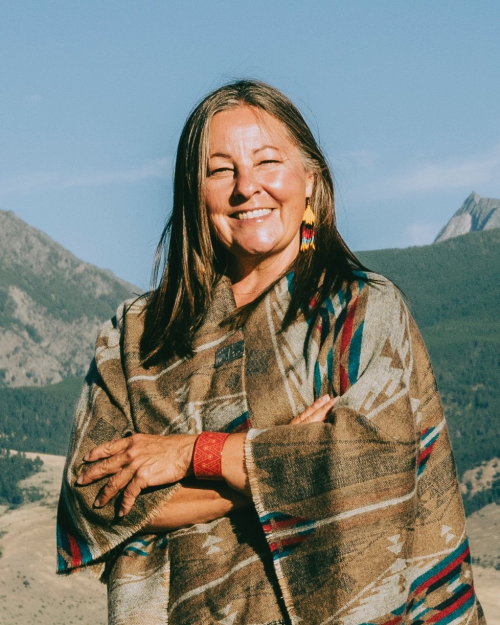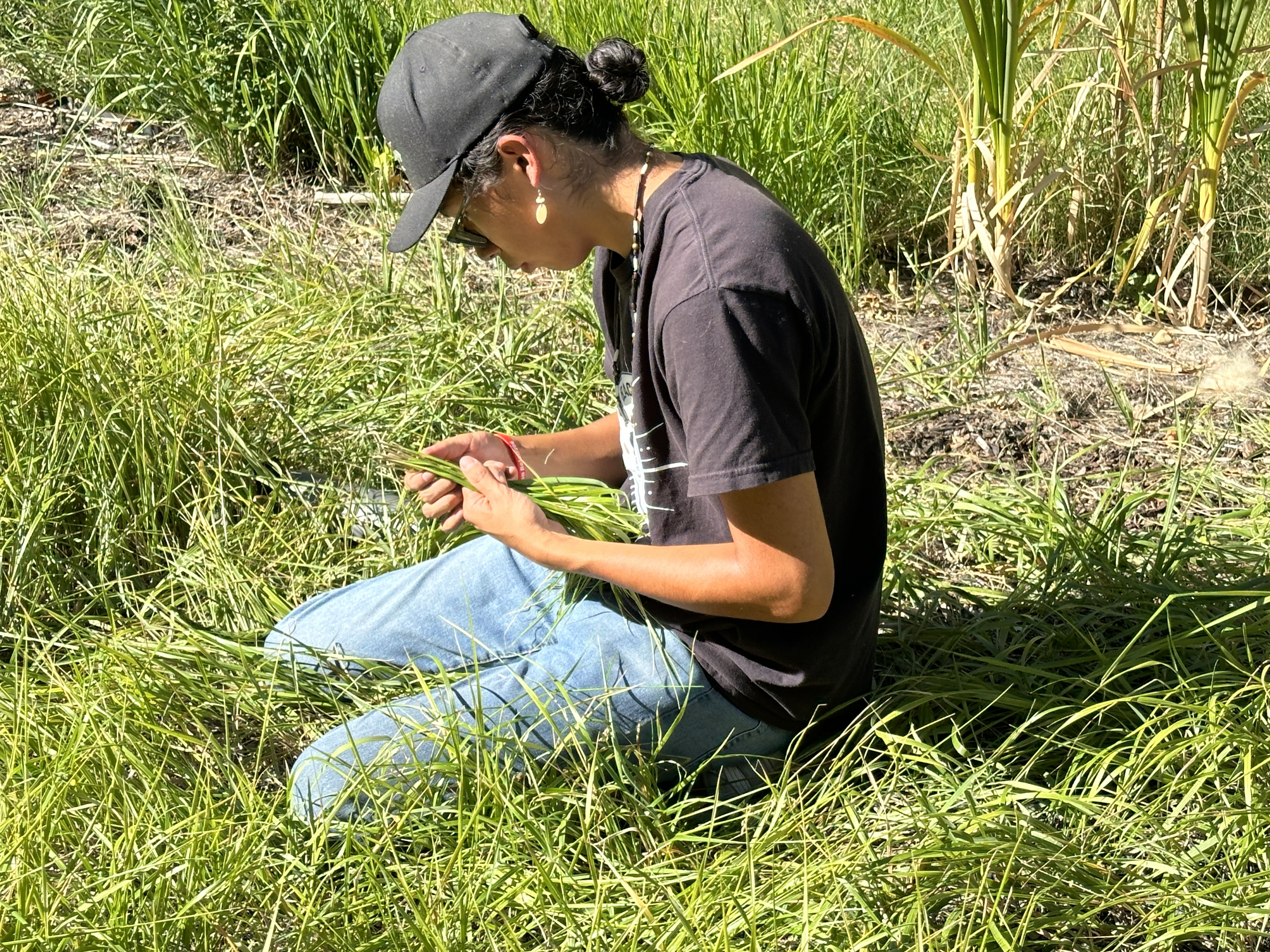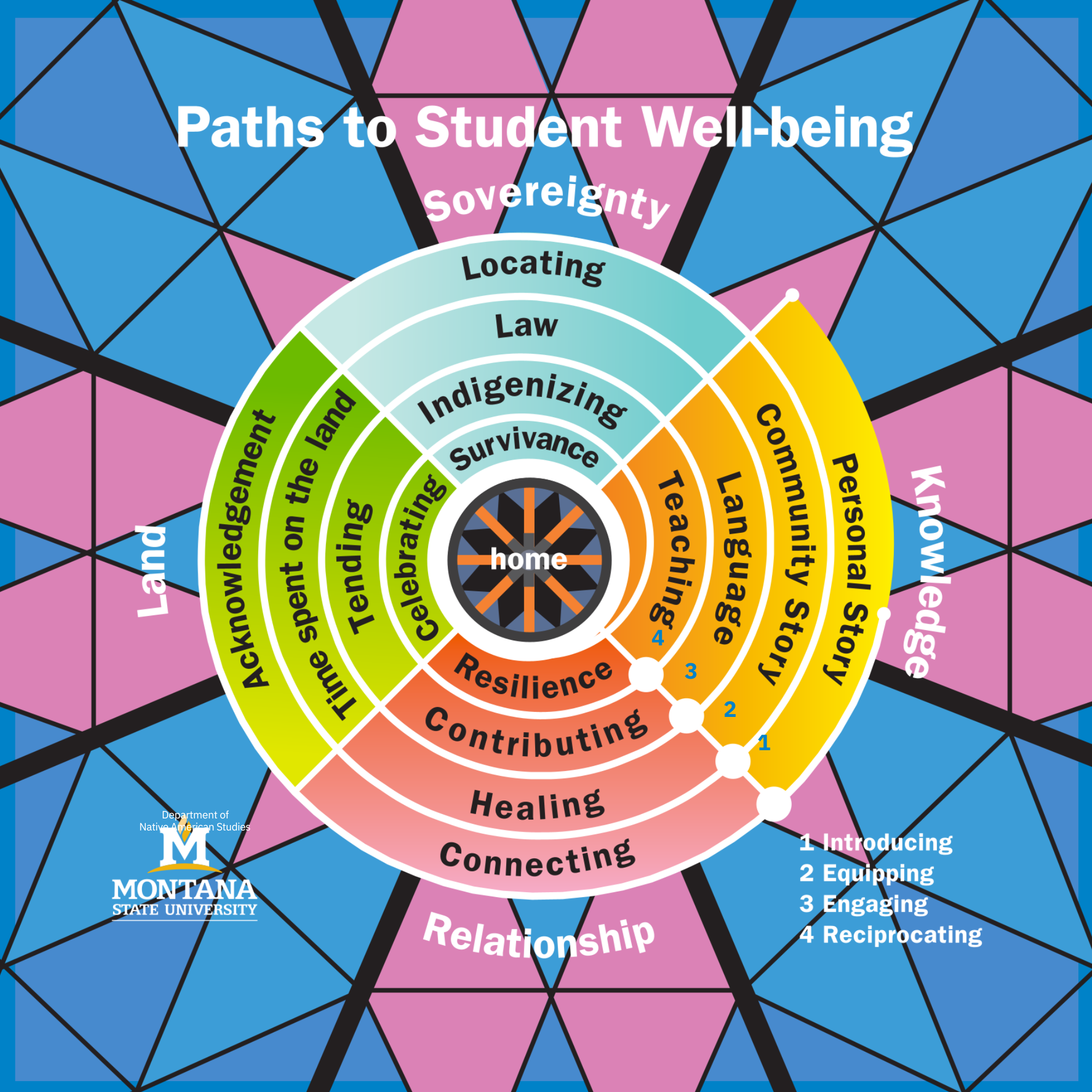NASX 516 Buffalo Food Systems: Spring & Summer
NASX 516
|
Course Description
Following the seasonal round of the Buffalo Nations Biocultural Region of the Northern
Great Plains and
Rockies, students will explore seasonal ecological ways of being, knowing and doing,
Indigenous
foodways and land practices.. Working with regional and community-based knowledge
holders, students
will engage knowledge and relational practices in support of vital 21st century Buffalo
Nation food
systems. The Spring-Summer course will guide students in Indigenous values focused
on locating oneself
in the web of relationship, the biocultural system, and their own personal and community
story. In
addition to learning from course instructors, students will ask for guidance from
knowledge holders in
their home communities as they engage in culturally regenerative relationships with
human and other
thanhuman relatives, and the land . As a regional online learning cohort s, students
will share with one
another as they learn from their own community work in support of mutual Buffalo food
system
biocultural regeneration.
Course Learning Outcomes
Students taking this course will be able to:
- Locate themselves in the web of relationship, the biocultural system, and their
own personal and
community stories.
- Engage in seasonal ecological ways of knowing and practices as they relate to people
and place in
the context of food sovereignty.
- Respectfully establish relationships with knowledge holders within their communities
in support
of cultural knowledge transference/regeneration.
- Demonstrate holistic systems thinking focused on knowledge and relationships (at
many levels) in
the context of local nuanced knowledge.
Course & Program Structure
The Indigenous Food Systems (IFS) Graduate Certificate is part of a collaborative
program led by an
Indigenous Advisory Council to the Buffalo Nations Food System Initiative (Buffalo Nations) at MSU.
Courses within this program are organized according to a model of student well-being
that emerges from
a shared understanding of what student well-being looks like in the Native American
Studies academic
and student success community at MSU. As established through the NAS Department’s
accreditation by
the World Indigenous Nations Higher Education Consortium (WINHEC), this model reflects a certain
(and mutable) understanding of student well-being, and is in no way meant to be prescriptive
of what
student wellness should look like in others’ communities.
Student Well-being Model
MSU Department of Native American Studies
The model aligns with an Indigenous ecological understanding based on the seasons
(each quadrant
representing a different season); but with the core values at the heart of 7 generations thinking: Respect,
Relationships, Reasoning, Reciprocity, Resourcefulness, Resiliency, and Reverence.
And like the Buffalo
Nations itself, it is in harmony with the 21st century vision of The Buffalo Treaty, especially in the areas
of Education and Research:
ARTICLE V - EDUCATION
Recognizing and continuing to embody all the teaching we have received from BUFFALO,
We,
collectively, agree to develop programs revolving around BUFFALO as a means of transferring
intergenerational knowledge to the younger and future generations and sharing knowledge
amongst our respective NATIONS.
ARTICLE VI - RESEARCH
Realizing that learning is a life-long process, We, collectively, agree to perpetuate
knowledge-gathering and knowledge-sharing according to our customs and inherent authorities
revolving around BUFFALO that do not violate our traditional ethical standards as
a means to
expand our knowledge base regarding the environment, wildlife, plant life, and the
role BUFFALO
played in the history, spiritual, economic, and social life of our NATIONS.
The Buffalo Treaty 2014
The foregoing concepts and interconnections provide the framework for IFS courses.
Thus, in the first
course, students consider elements of Knowledge and Relationship in the context of
Spring and Summer
seasons; in the second course, they consider elements of Land and Sovereignty in the
context of Fall and
Winter seasons. This seasonal ecological course of study uses Indigenous knowledge
systems as a primary
source of understanding and Western Science as a companion way of knowing. Centered
in Indigenous
ways of knowing within a value system that privileges Respect, Relationships, Reasoning,
Reciprocity,
Resourcefulness, Resiliency, and Reverence, students establish and nurture contemporary
relationships
with knowledge holders and with each other. In doing so, they re-engage ancient and
complex systems of
trade–of knowledge as well as goods–in an act of self-determination that is fundamental
to Indigenous
food sovereignty
Instructors

Jill Falcon Ramaker (Anishinaabe: Turtle Mountain Ojibwe) is Assistant Professor of Community Nutrition and Sustainable Food Systems. She directs the Buffalo Nations Food System Initiative at Montana State University, an education and research initiative in support of intertribal food sovereignty aligned with the Buffalo Treaty. The initiative serves the Buffalo Nations biocultural region of the Northern Plains and Rockies including three Canadian provinces and five US states, including through the new Indigenous Foods Lab founded this year in Bozeman. Her research lies in the restoration of balance in human-natural systems, buffalo return, Indigenous land practices, heirloom seed propagation and stewardship, the buffalo culture seasonal round, cultural identity, Indigenous wellness, and biocultural diversity. She is a mother of three and a member of Minweyweywiigan Midewiwin Lodge, Roseau River First Nation, MB.
Buffalo Nations Scholarship
Buffalo Nations is offering a limited number of scholarships to this program to build capacity for intertribal food sovereignty. Scholarship priority to the program is given to those engaged directly in the Indigenous food sovereignty work of their communities. Tribal college instructors/staff are encouraged to apply.
Buffalo Nations Scholarship Applciations are due by February 23!
Tuition and Fees
If you are accepted into a qualified online program, see the appropriate MSU Tuition and Fee table below:
For more information, view MSU Fee Schedules.
How to Register
You must be accepted as a student to Montana State University to take this course. Learn how to apply.
Students register for courses via MSU's online registration system, MyInfo.
Registration requires a PIN number. Learn how to find your PIN.
Once you have your PIN, learn how to register through MyInfo.
For more information: Please contact Kristin Ruppel at ktruppel@montana.edu or Jill Falcon Ramaker at jillfalcon.ramaker@montana.edu.


